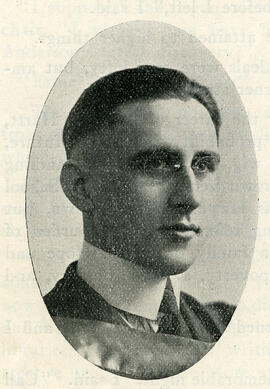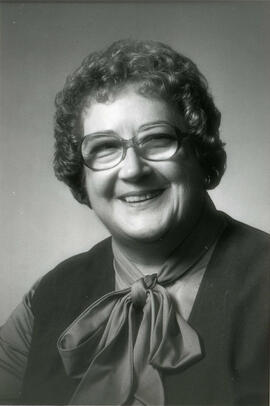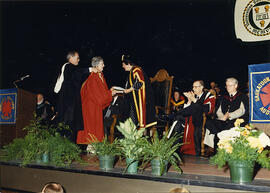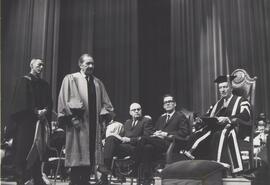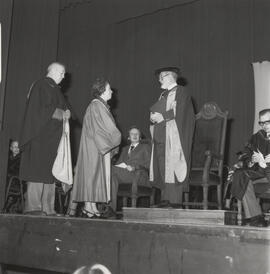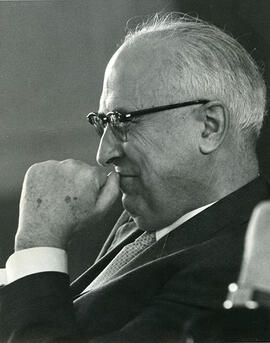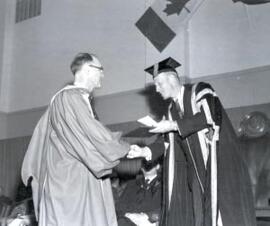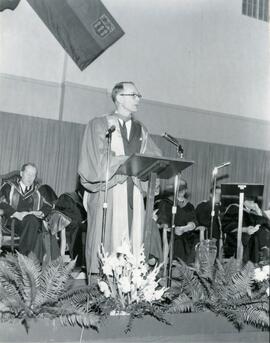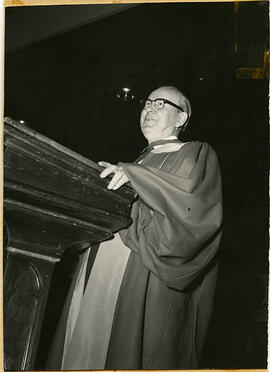E.M. (Ted) Culliton, University Chancellor, making presentation of an honourary Doctor of Laws degree to Dr. David M. Baltzan at Convocation held at Centennial Auditorium. Norman K. Cram, University Secretary, awaits to hood recipient.
Bio/Historical Note: Dr. David Mortimer Baltzan was born on 10 May 1897 in Bessarabia, a province of Tsarist Russia, now Moldova, and came to Canada with his parents in 1905. His father started up the Saskatchewan Hide and Fur Company in Saskatoon. Dr. Baltzan excelled at school, and was the first in his family to become a doctor. He graduated from McGill University in 1920, completed his practical experience in New York, and then studied internal medicine in Edinburgh, London, Vienna and, finally, at Johns Hopkins in Baltimore. Dr. Baltzan eventually chose Saskatoon as the site for his ground-breaking practice, fired by the need for modern innovations in internal medicine. Against all advice Dr. Baltzan eschewed surgery, which was making others rich, to invest in a portable electrocardiograph (ECG) and an X-ray machine for his office. In spite of predictions that he could not succeed, he created the Baltzan Associate Medical Clinic, enticed his three sons and a daughter-in-law to join him, and stayed active for fifty years. Among other contributions, he was a member of the Hall Commission, which created the blueprint for public health care in Canada. Dr. Baltzan was awarded an honourary Doctor of Laws degree by the University of Saskatchewan in 1969. He died in Saskatoon on 15 June 1983.
The sons of David Baltzan were Marcel Alter (Marc) Baltzan (1929-2005), Donald Myer Baltzan (1933-1988) and Richard (Dick) Baltzan (born 1935). Dr. Betty Lou Baltzan, Marc’s then-wife, was part of the medical team that performed Canada’s second kidney transplant at University Hospital in Saskatoon in 1964.
Baltzan Bay, Boulevard, Cove, Crescent, Place and Terrace in the Evergreen neighborhood are named in the family’s honour (2020).



